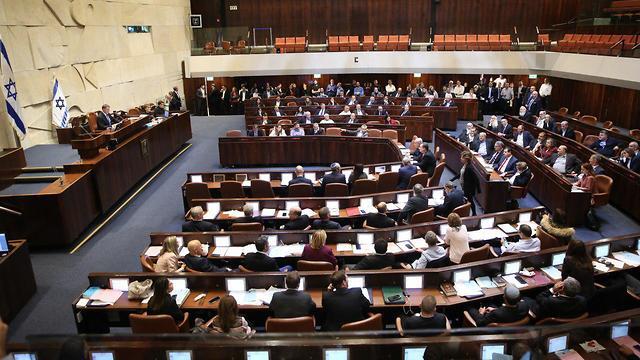Getting your Trinity Audio player ready...
The Knesset plenum on Monday approved a contentious bill that would set term limits for the premiership in its first reading, with 66 voting for and 48 against.
The legislation was tabled in the legislature after the Ministerial Committee for Legislation voted overwhelmingly in favor of the bill last week despite some claiming it appears to personally target former prime minister Benjamin Netanyahu due to his ongoing corruption trial.
The proposed amendment to Israel's quasi-constitutional Basic Laws — tabled by Justice Minister Gideon Sa'ar — would force a prime minister to step down after eight years in power, or, alternately, after serving two terms that followed two elections.
The draft bill must clear the remaining two Knesset plenum readings before becoming law and will not be retroactive, thus not affecting Opposition Leader Netanyahu — who had served as prime minister for 15 years in total over two non-consecutive terms — if he seeks reelection.
Coalition party leaders advocated for the bill ahead of the vote, saying it was necessary to prevent corruption bred by a prolonged hold of power.
In a dig to Netanyahu, Sa'ar took to Twitter to celebrate the results of the vote and wrote, "we're working for the citizens of Israel and not for the personal interests of one person.
2 View gallery


Then-education minister Gideon Sa'ar and then-prime minister Benjamin Netanyahu
(Photo: Alex Kolomoisky)
He vowed to introduce a similar bill limiting terms for mayors in the future.
Netanyahu's Likud party denounced the bill as "undemocratic," with the opposition leader stating that no other democratic country with a parliamentary system of governance has such a law.


